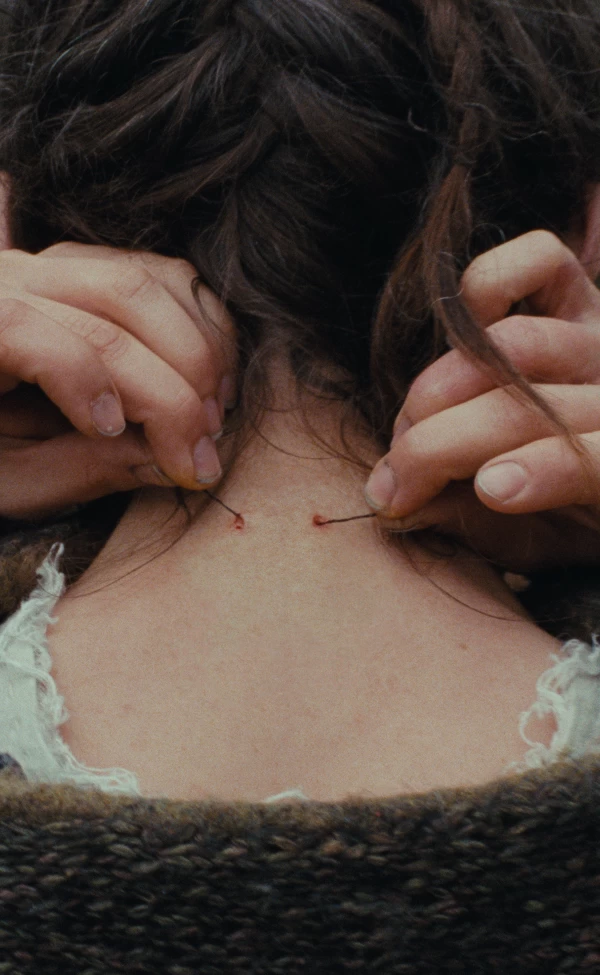
Upper Austria in 1750: Agnes, a young married woman, doesn’t feel at home in her husband’s world. The deeply religious and highly sensitive woman withdraws into herself, moving further and further away from the rural world of work and everyday life. Ultimately, a shocking act of violence seems to be the only way out of her inner prison.
| Original title: | Des Teufels Bad |
| Country: | Austria |
| Year: | 2024 |
| Time, min: | 121 |
| Genre: | folk horror, historical, drama |
| Director: | Veronika Franz, Severin Fiala |
| Writer: | Veronika Franz, Severin Fiala |
| Starring: | Anja Plaschg, Maria Hofstätter, David Scheid |
| Music: | Soap&Skin |
| Language: | German |
| Subtitles: | Estonian, Latvian, English and Russian |
“The Devil’s Bath” premiered in Competition at the 2024 Berlinale, where it won the Silver Bear for Best Cinematography (Martin Gschlacht) and got excellent reviews from audience and critics. “The Devil’s Bath” has also been submitted by Austria for Best International Feature Film at Oscars this year.
Set against the backdrop of 18th century Austria, young Agnes is trapped in a marriage with a disinterested husband and controlling mother-in-law who makes her life hell. Struggling with the isolation and despair of her unfulfilling existence, she descends down a dark and disturbing path.“The Devil’s Bath” story is based on research, concluding that people suffering from melancholy (a condition commonly referred to as "the devil's bath") deliberately committed crimes in order to be executed. There is hardly a more egregious phenomenon in modern history that has been so overlooked. Throughout Europe, in Germany, Sweden, Austria, France, and England, and for over a century, women attempted to end their lives by committing almost ritualistic acts of murder. In this way, they hoped to escape the eternal damnation promised to those who committed suicide. Before their execution, they could confess their crime and thus upon death go to heaven cleansed of their sins.
“The Devil’s Bath” refers to a phenomenon that is still a social taboo and major problem today: depression. The genre precursor to the film can be considered narratives about witch hunts, especially those presented in a horror context — a significant number of women executed as witches, according to court documents, likely suffered from mental illnesses. But “The Devil’s Bath” is different and unique: Veronika Franz and Severin Fiala create a profound and disturbing psychological portrait of a woman made of flesh and bone and give a voice to the peasant women who were invisible and unheard at that time. The film depicts their harsh daily lives defined by religious dogma and taboos whose impact resonates to this day.










